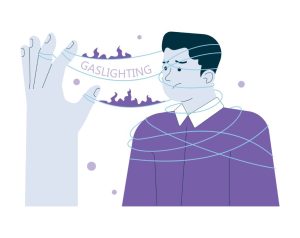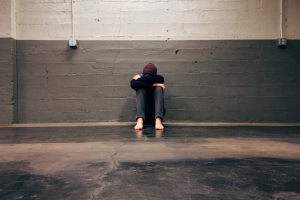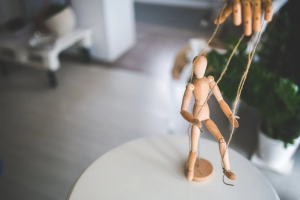People who are taken advantage of or mistreated by someone with narcissistic tendencies or narcissistic personality disorder (NPD) may suffer from narcissistic abuse syndrome. This phrase refers to the mental and emotional damage that can happen to these people. This word doesn’t mean that someone has a mental illness, but it does show how this kind of abuse can harm the victims’ mental health for a long time. “Narcissistic victim syndrome” is a term that some people use to describe the state of being narcissistically abused. It’s vital to know that narcissism and abuse aren’t always linked, even if they are often linked. Not all narcissists are abusive.
What is the state of narcissistic abuse?

People who are dating someone who is narcissistic may acquire narcissistic victim syndrome, which is a mental and emotional strain. People with narcissistic victim syndrome may feel anxious, not trust themselves, be scared and confused, and want to keep away from particular situations. People who are often gaslighted or ridiculed have a hard time trusting what they see and hear. People who are victims of this kind of psychological manipulation may have mental health problems that endure a long time, such as feeling alone or losing their sense of who they are.
How to Tell If You’re Being Narcissistically Abused

It can be hard to spot narcissistic abuse since it happens slowly and quietly. But narcissists and those with NPD often act in certain ways. People who act like this often want to control others, trick them, and hurt their feelings. Here are 12 frequent ways that narcissists hurt people. If you see any of these indications, it could mean that someone has been through this kind of abuse:
Making something look perfect Then came the drop in value

In a romantic relationship, narcissistic abuse starts with a “love bombing” period in which the abuser showers their spouse with gifts, praises, and praise. People who abuse are nice, kind, and caring. To entice victims to date them, they show a lot of love, thinking that the victim will fall in love with them. Once they have their victims on their side, they stop being kind and start being harsh, giving backhanded compliments, or ignoring them. Parents who are narcissistic may only show their kids love and support when they do what they want. If the kid makes them angry or unhappy, they might take it away.
Gaslighting

When a narcissist gaslights someone, they lie about a series of events or change the facts, even if they are true, to make the victim feel confused. Abusers will trick their victims into believing their memories or lies, which makes victims question their sanity and how they see the world. Gaslighting can affect a person’s mental health for a long time, making them feel confused and unsure of themselves for the rest of their lives.
Being alone

People who have been hurt by a narcissist may feel like they can’t talk to their family and friends. The abuser may keep their victims away from their support network, which makes it easier for them to dominate their brains. If victims don’t have a support network, they can’t tell anyone how mentally mistreated and disregarded they feel.
Abusers who utilize the “hoovering” method take advantage of victims’ lack of emotional support to drag them back into the cycle of abuse. People also use the word “hoovering” when victims desire to end the relationship. Narcissists would do anything to get their victims back. If they can’t get their victims to believe them, they usually get furious and stop talking to them or toss away their contact.
Campaigns to smear

Narcissistic abusers have to keep up their false image and reputation in order to earn the affection they think they deserve from others. When victims start to see their abuser’s narcissistic traits or question what they do, they may be the target of smear campaigns that try to make them look terrible. The abuser could lie to others they both know about the victim’s character or behavior to keep them apart and keep up a good picture in front of other people.
Always asking yourself

People who are constantly knocked down and criticized may tend to think unpleasant things about themselves. When abusers say things like “You can’t make smart decisions” or “I don’t think you can do any chores right,” they are trying to control their victims. An abusive partner makes matters worse when they call the victim stupid or ignorant. They often hide their remarks under a fake loving tone to make them sound less mean while hurting the victim’s self-esteem.
Body signs

You might feel nervous and afraid because of narcissistic abuse, and this could show up in your body. People who have been hurt may experience headaches, stomach problems, tiredness, trouble sleeping, high blood pressure, or other indicators of stress. This is how the body naturally reacts to stress or trauma after being emotionally tortured for a long time. People with narcissistic victim syndrome may also have additional health issues, such as feeling nauseous, not being able to sit still, and changes in their eating.
Feelings that aren’t stable

People who are victims of narcissistic behavior are always on edge because they don’t know how to handle the incessant “push and pull.” They could feel like they’re always on edge since they don’t know how they’ll be treated at any given time. Narcissists often change from being kind and charming to being nasty or critical in ways that are hard to foresee, which makes things unstable. This erratic behavior makes it hard for victims to know how the narcissist will act in any situation, which makes them uneasy and focused on staying out of trouble.
Not knowing who you are

People who have been in relationships with narcissists say they don’t know who they are anymore. Victims may forget what they like and who they are if they change how they act to make the abuser pleased. It’s challenging for victims to feel good about themselves and stand out from the crowd. Narcissists don’t care about the health of the people they injure. Narcissists use their relationships to get what they desire. Victims may feel hollow and cut off from themselves after losing their sense of self.
It’s hard to make limits.

People who suffer narcissistic victim syndrome often have trouble keeping their boundaries clear. Abusers often completely ignore boundaries or punish victims for trying to follow them. People who have been abused and exploited by narcissists are more likely to cave in to pressure and put the needs of others ahead of their own. Because of this, victims may feel weak and unable to protect themselves in future relationships.
Worry and sadness.

People who have narcissistic victim syndrome could be depressed and anxious. Victims typically feel anxious and can’t stop wondering about what their abuser might do next. People who are continuously being hurt and put down feel depressed and confused. People who act this way could stop liking things they used to like, and their symptoms might get worse.
What to do when you are stuck

Some people who are hurt all the time get into a “freeze” state. This makes them feel like they can’t get out of the violent relationship or do anything. This reaction arises when you’re scared and don’t know what to do. The brain tells the body to freeze until it’s safe to move. If you’re really scared of being alone or being left behind, these feelings might get worse. These trauma responses can grow so strong that they change how victims deal with relationships in the future.
Finding out how narcissists use manipulation

Narcissists use a multitude of various techniques to keep the people they hurt under their control. They utilize gaslighting to make victims doubt their own reality, triangulation to bring in third parties to conflicts and support their story, and hoovering to get victims back into the relationship or fake apologies when their behavior is called into question.
Narcissists also use passive-aggressive methods, such blaming people or hurting them without saying so outright. They often ignore victims and blame them for issues in the relationship as a method to punish them. People always get puzzled by these things, which lowers their self-esteem and confidence over time. This makes victims need the narcissist’s praise and affirmation more and more.
The Long-Term Effects of Narcissistic Abuse

People who have been abused by narcissists often have emotional scars that last long after the relationship ends. This makes it hard for the victim to feel good about themselves, trust other people, and form strong relationships. Victims may feel alone since they can’t explain the abuse to those who don’t understand how subtle it is. Many victims also find ways to deal with their pain, such staying away from other people or taking medications.
Steps to Getting Help and Feeling Better

When survivors begin to heal, they often have to talk about the abuse and adopt techniques like “no contact” or “gray rocking” when they have to talk to the abuser. One crucial thing you can do to feel better and get rid of emotions of loneliness and hopelessness is to build a strong support network of friends, family, or support groups. People who have been through trauma can seek support from cognitive behavioral therapy (CBT) and eye movement desensitization and reprocessing (EMDR). These are two types of therapy that help individuals deal with their trauma, get rid of negative thoughts about themselves, and feel better about themselves again.
Finally,

People who have narcissistic victim syndrome suffer a lot and may have emotional wounds that last a long time. But they can get better with the appropriate care. You can start repairing things before they get worse if you see the indicators early. Therapy is a safe place where you may talk about what you’ve gone through and learn how to move on with your life after being abused.
